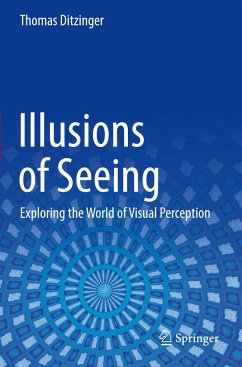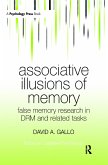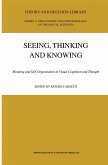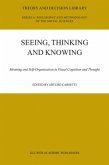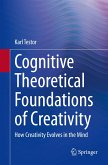Why do we need two eyes? Why are all cats grey at night and appear to move faster the day? Why is the sky blue and the setting sun red? This book explains the multifaceted nature of perception, and discusses the mysteries of vision. It provides readers with experiments to help them discover optical illusions and the features of their own perception. Illusions of Seeing begins with a discussion on the essence of light and its perception to the human eye. It presents a comprehensive overview of the basic laws of human perception as well as the fundamentals of good gestalt. Subsequent chapters discuss geometric-optical illusions; the perception of form, brightness, and translucency and their interaction with each other; ambiguous perception, color vision, spatial vision. The book ends with a discussion of the perception of motion and its interaction with color, form, and spatial depth with a full chapter devoted to illusions in our everyday life. Consider this your travel guide in the marvelous world of sight, to experience a completely individual way to understand and improve your own perception.
Illusions of Seeing will be of interest to psychologists, physicists, biologists, and undergraduate and graduate students within the field of cognitive psychology.
Illusions of Seeing will be of interest to psychologists, physicists, biologists, and undergraduate and graduate students within the field of cognitive psychology.

